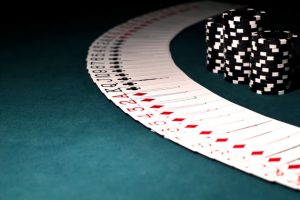 Despite the bandwidth of leveling, situations where we lose are not called leveled. So, how does a situation become suitable for applying leveling?
Despite the bandwidth of leveling, situations where we lose are not called leveled. So, how does a situation become suitable for applying leveling?
Simply put, there are two types of mistakes in poker: evaluation mistakes and psychological mistakes. Evaluation is your ability to express optimal play in a static situation with numbers. Mistakes occur when a suboptimal strategy is chosen instead of the optimal one, despite all the information received. Psychological mistakes occur due to incorrectly predicted information that is not yet available.
An evaluation mistake arises from an error in the player's poker theory. If he makes such a mistake, it means he did not thoroughly evaluate ranges, combinations, odds, or something else before making a decision, even though all the information is in front of him. A psychological mistake is one where more information is needed for the player to make a decision against his opponent, but he has no way to obtain it. And then a situation arises where leveling can be applied.
For example, if the action ends with your 4-bet/call off with ATo against someone who shoves very narrowly (and you know his range), then it is an evaluation mistake. But if you call an overbet on the river when the board is completely dry, and your hand is completely clear, thinking that the opponent expects you to fold, but it turns out he has the nuts, such a spot can be called a psychological mistake or a leveled situation.
What is meant when it is said that FPS player “leveled himself”? Now we can more clearly explain what it means. To level oneself means to make a mistake in an evaluation situation due to a psychological situation, or to make a mistake in a leveling situation due to a non-level situation. In plain language, it means that the correct play was obvious, but the player somehow convinced himself to do the opposite. The correct path would have been to use evaluation analysis and frequencies (“his bluff frequency in this situation is high, so I will call”), but the player incorrectly tried to connect the situation with a leveling problem and thus made misleading conclusions.
The difference can be defined as follows: a leveling situation is not purely psychological but also binary. It sounds a bit silly to say that his frequency leveled you or that all the opponent's strategy did it. When we talk about leveling, we need to use a reductionist approach to poker. Look at the hand as a particle made up of atoms, and the decision to be made as an X or Y decision.





